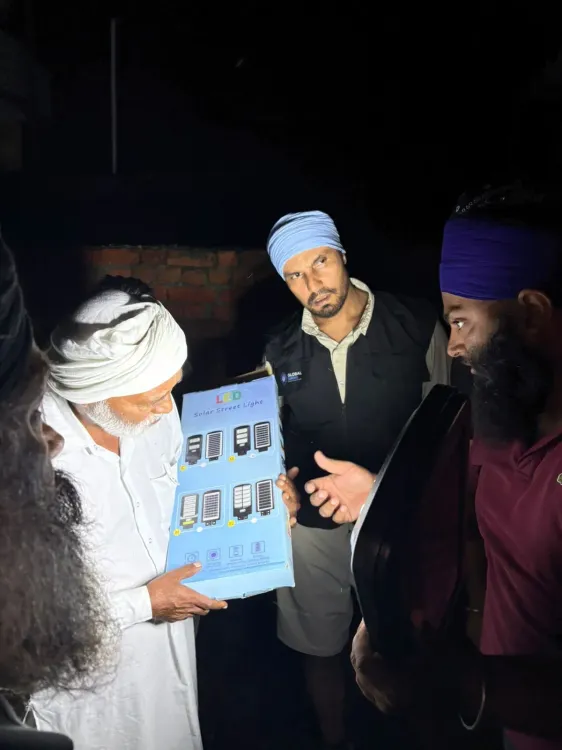Is Randeep Hooda Supporting Flood-Hit Families in Punjab?

Synopsis
Key Takeaways
- Randeep Hooda is actively supporting flood-hit families in Punjab.
- The floods have severely impacted Gurdaspur and surrounding districts.
- Over 20,000 individuals have been evacuated due to the crisis.
- 167 relief camps have been established for displaced persons.
- Global Sikhs NGO is leading the relief efforts.
Mumbai, Sep 4 (NationPress) In light of the devastating floods in Punjab, actor Randeep Hooda has taken initiative to assist families impacted in Gurdaspur.
A source involved in the relief effort remarked, “Randeep has always felt compelled to offer his support to the people of Punjab during such trying times.”
Hooda has collaborated with Global Sikhs NGO Founder Amarpreet Singh and his longtime friend Maninder Singh, with whom he has been working for over a decade. This partnership has consistently aimed to provide aid to communities facing crises.
The source further stated: “He has united with the Global Sikh NGO, an organization he has a long-standing association with, to deliver relief, rehabilitation, and personally visit flood-affected areas to meet families who have lost their homes and possessions. He engaged with those impacted, listened to their challenges, and reassured them that efforts would persist to assist those in dire need.”
Thanks to the tireless work of Global Sikh NGO volunteers, relief supplies are being distributed, ensuring that every possible effort is made to comfort affected families.
On September 3, Punjab Revenue Minister Hardeep Mundian reported that the state is grappling with one of the most severe floods in recent decades, with significant crop damage across 175,216 hectares.
He mentioned that the districts of Gurdaspur, Amritsar, Mansa, Ferozepur, and Fazilka are among the hardest hit, contributing to the majority of agricultural losses. The extent of destruction to crops, villages, and the population highlights the gravity of the disaster affecting 23 districts in Punjab.
Providing an overview of the relief operations, Mundian noted that over 20,000 individuals have been evacuated from low-lying and severely affected regions. Major evacuations included 5,581 people in Gurdaspur, followed by 3,495 in Ferozepur, 2,734 in Amritsar, 2,422 in Fazilka, and others.
To house the displaced, 167 relief camps have been set up statewide, including 29 camps in Barnala, 26 in Patiala, and others spread across various districts. Currently, 5,304 individuals are taking shelter in these camps.









